“[Athos] … was profoundly versed in hunting and falconry, and had one day when conversing on this great art, astonished even Louis XIII himself, who took a pride in being considered a past master therein.”
Dumas
In September 2017 a great harvest moon rose over the forest. It was big and glowing orange, now and then shrouded in cloud trails. Too early to be a Hunters’ Moon, the moonlight revealed wooden platforms ready for shooters, standing like sturdy gallows amongst the shadowy trees. If hunting is an art, then Milady knew it, for she is a hunter, or becomes one.
Inga drove us, fast, through the trees after a visit to Chaumont for a delightful yoga and meditation class, in French, with the odd English word thrown in for elucidation. During the meditation, around a camp candle (no room for a fire) surrounded by flowers, Clara, a dancer with noble profile, advised us to open up our Art chakras.
While quiet in the Arty Meditation, I suddenly heard Sexy Lexy say (in my head), ‘You’re stupid. You should lighten up.’ Something I’m reasonably sure Dumas would never have said but could well have intended.
I told him, ‘You prefer parties and hunting and gambling. You don’t know me.’
‘Just doesn’t matter. Amuse yourself.’
Like other manly writers, Dumas was a keen killer of beasts - cast or blast - and so was Louis XIII. He will gift Anne one of his falcons and his falconer will instruct her. Athos (albeit in his youthful guise) will teach her the basics of hunting - which in those days was kill or be killed. Hunting was practice for war. And we all know about The Art of War.
The next day I waited in the attic for the Airbnb paying guests to leave before we could start the day proper. I further contemplated the WorkAway dilemma. Tasks were the easy part. We were given instruction, tools and, hopefully, safety gear. But it was the personal that continued to uncertainty and tension. Kitchen politics were the case in point I understood only too well. In happier times, when I hosted and looked after visitors (rather than the other way around now) I had absolutely been strict and stern about my ways in the kitchen. The Chef is always the Chef. Marie hated the idea that ground coffee could be kept in the freezer. She didn’t like the light over the stove top. The sink surround was not waterproof. Life was an awkward balancing act between bolstering and congratulating (you look very nice, thank you for driving me to the market, I really like your colour choices) and sucking up and toadying (please like me, please give me treats, I really want to be safe). This could be how Anne de Brueil would have felt, under the protection of people who could easily kick her out on a whim or perceived insult.
Marie held strong views about the idiocy of rinsing vegetables. For example, it was completely unnecessary to wash potatoes before cooking. Good, clean soil never hurt anyone. It mostly boiled off in the pot, anyway. Why on earth would you wash lettuce? Cucumber? Tomato? I bit back comments about mouse lips and dog wee, merely nodding in agreement as Marie castigated herself for watching over me (micromanaging again!) and went on her way. Other WorkAwayers had admitted to worse, washing in city water, filled with chloride and worse poisons, why would you need to clean vegetables at all? Indeed. Why?
And the scandal of rinsing dishes. Having been taught how to wash dishes at the knee of my water-saving father, I luckily passed muster on this subject. Every article scrubbed in a small sink of soapy water and the water level gradually increases as each plate is rinsed. Most NZers and Brits failed Marie’s expectations miserably. Marie was aghast they would happily eat a film of soap on their poorly rinsed dishes. At least I regained some status.
Once, I prepared three tomatoes to use in a ratatouille, intending to blanch and remove the peels. I did this quickly, on the way to do some other task, leaving the toms in the cold water to separate the skins. On return I found Marie had used them to make a tasty sauce, including the peels.
To peel or not to peel was an ancient battle in my childhood home. My father would carefully peel each fragment of peel away from his cooked tomato while my mother would berate us firmly for following suit with the same fussy nonsense. And us children would dutifully eat our peels. When Mother was watching …
In discussing upcoming work tasks, Marie told me I’d be putting rubber strips around the beams. She’d been advised by friend Gerard, or Maurice perhaps, it was best to protect them. Previously I’d heard her talk of silicon around the kitchen sink to prevent the damage caused by damp so I thought nothing of it. If she gave me the equipment, whatever rubber strips she’d procured, I would do my best.
But she meant masking tape and our communication never ranked so low. It was a thin masking tape that did not stay up in the steamy environment of the kitchen and became a rather impossible task. But we both persevered!
Another WorkAway concern was when to clean, and how much. Many of the places where I worked were in the midst of renovation and necessarily grubby. The hosts were busy and used to a certain level of discomfort in order to get to the next level of their dream. However, if one cleans further than one’s remit, washing down a shelf above the sink, for instance, does that imply too much cleaning? Too much judgement? Are you criticising their work or lifestyle? Or are you only doing what they wish they had time to do?
On a day off, after breakfast was cleaned away, Marie chatted with Maurice the sparky and I took a wander around the tiny village.
The Church of Saint Hippolyte lies in the middle of Bay-sur-Aube, as both the heart and the art. If you are near Bay-sur-Aube on August 13th, his feast day, see if you can attend the church at 07:10, when the light of the rising sun will send stained-glass colours from the windows down the centre aisle to the door. (I missed it)
Saint Hippolyte was a scholar and may have been torn apart by wild horses. This explains the horses over the door of his church.
No shops though most of the houses and sheds are in good condition. There were some examples of antique farm equipment, carts and threshers and things that may not have been strictly antique to their owners. No school. Very quiet. Saw a cat in the distance. Thought I heard Victor barking.
When I returned, Gerad, the bringer of tomatoes, was introduced and brought in to give wall advice. Included at first, I was dying to ask about the original wall building process and he tapped the wall and explained we’d have to get that old cement away. But gradually they turned their backs on me, speaking French, as is common sense when you live in France! Feeling excess to requirements, I slunk back to my garret and pondered which photos on my phone were worthy of an Insta post.
With great excitment Marie took me to a concert at the Abbaye Auberive, featuring a French swingle-singer-type group called “Les Grandes Gueules” (the big mouths!) (translation provided by first WorkAway host, Donna!) Bass, tenor, mezzo soprano and soprano, they were clear and precise with fun, bouncy choreography, and sometimes very beautiful otherworldly tones, singing in a chapel built in the eighteenth century when the Abbaye was turned into a woman’s prison. Marie spoke to Victoria, an American jazz singer, about the difficulties of singing in a church and dealing with an echo. I was surprised to hear that. I always thought church singing to be very lively (I’m not in a choir, of course) and I thought the mics would have made some kind of difference.
I found a feather at the Abbaye but, as the buildings were after Milady’s time, I was not convinced of any signs and portents.
The mill might have been built by the original Cistercians and I wondered about the differences between Cistercian and Benedictine Abbayes. Both were largely self-sustaining and both were aesthetes.
I did take inspiration from some of the Abbaye’s grounds, the waterway and the orchard, to be used in Anne’s childhood Priory. She will catch fish in the stream and pick fruit from the orchard. Most of the layout of the Priory is based on the Abbaye de Hambye in Normandy, another of my WorkAway adventures.
As usual, while looking for Milady, it was more about the search. Listening to this group brought back my father’s eclectic musical interests. From The Swingle Singers to Ravel (I realise I’ve just named two French musical acts, subconsciously) he would have something on a reel somewhere in his collection.

It was easy when the camp candle fire struck light beams through my watery eyelids to decide seeking Milady did not have to follow any rules. I could write her any way I wished. I could be me. As if I were European. As if I could be who I thought I might be once upon a time. Whoever that might be. I can open up my Art Chakra. Or, perhaps, even, my heart.

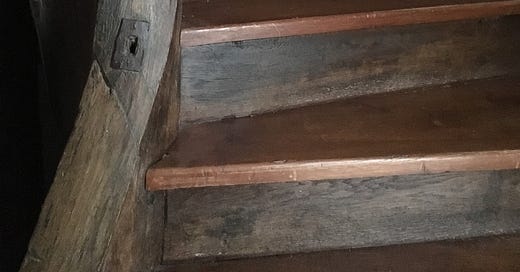



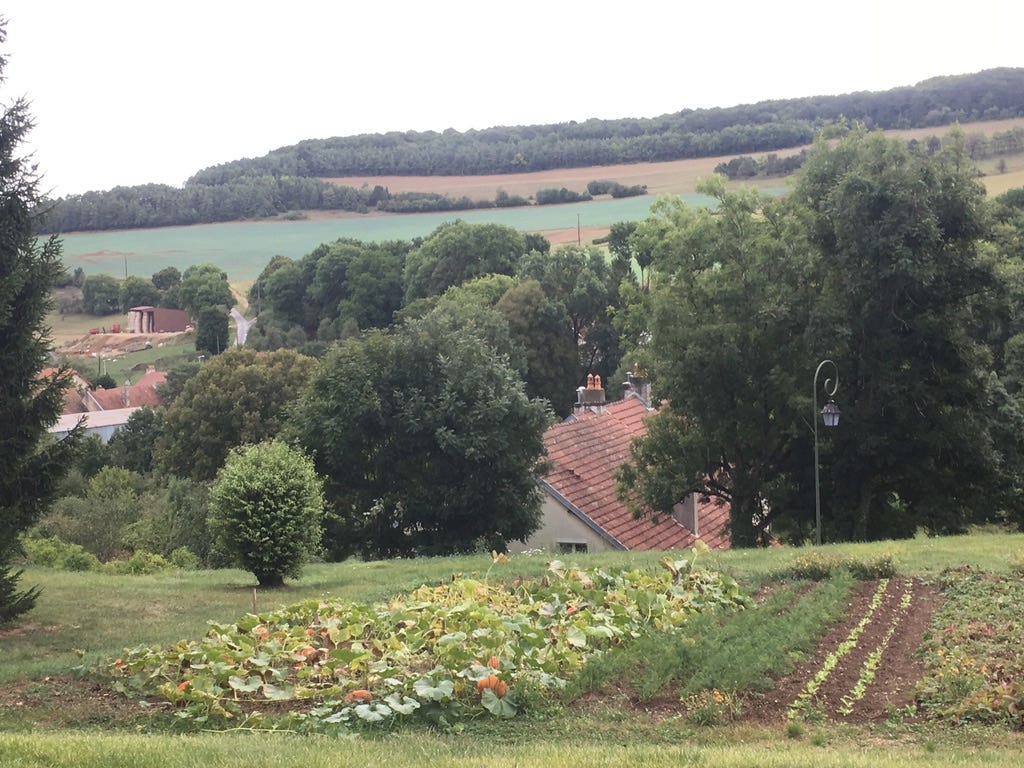
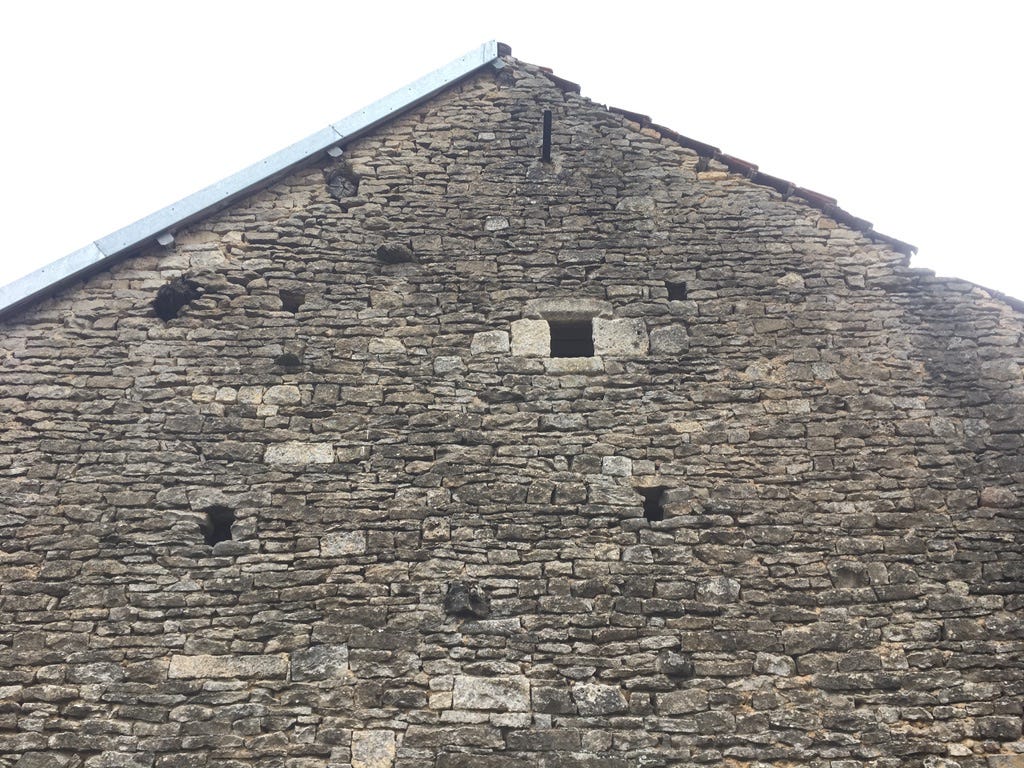

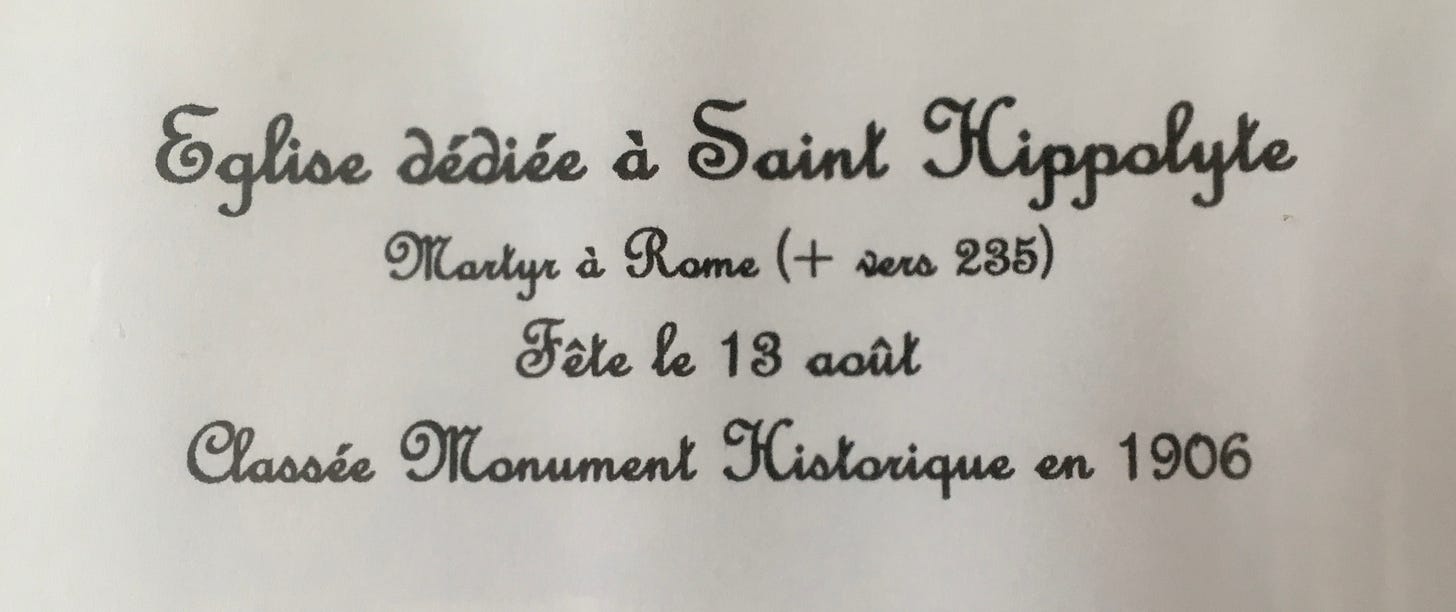
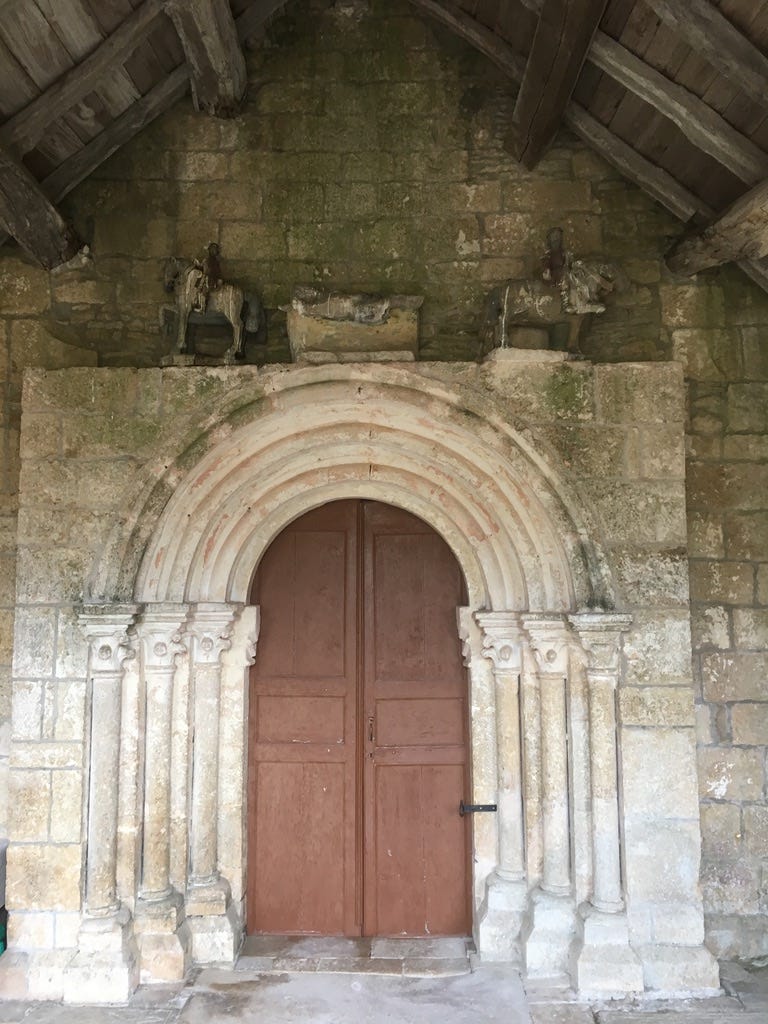
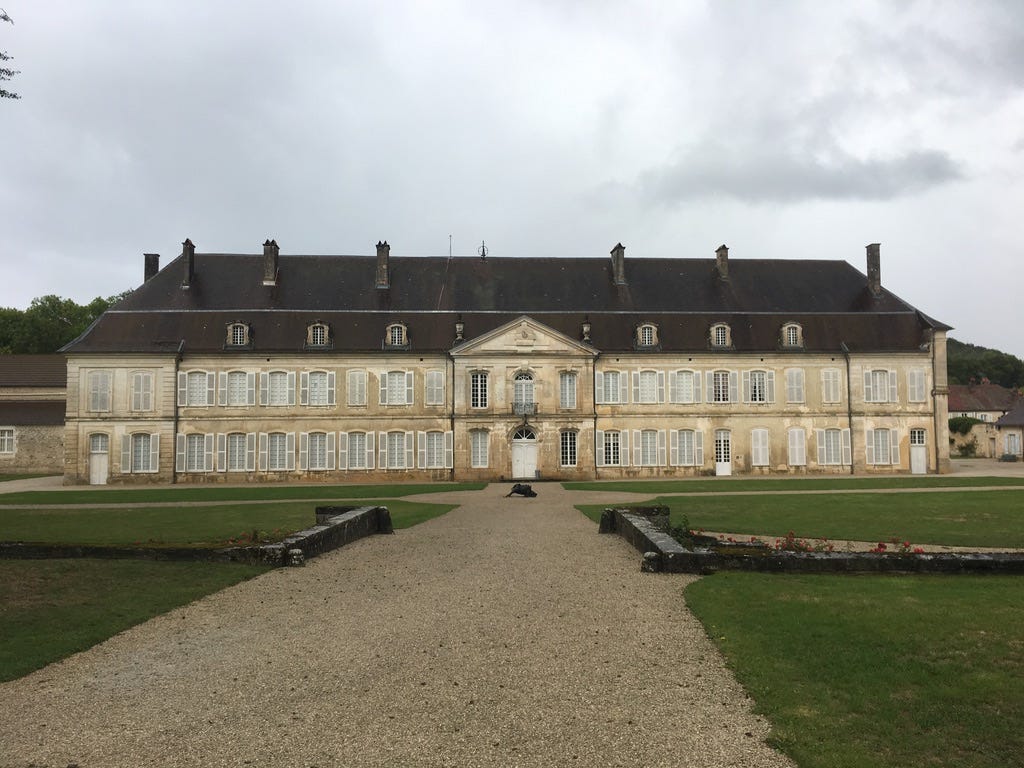
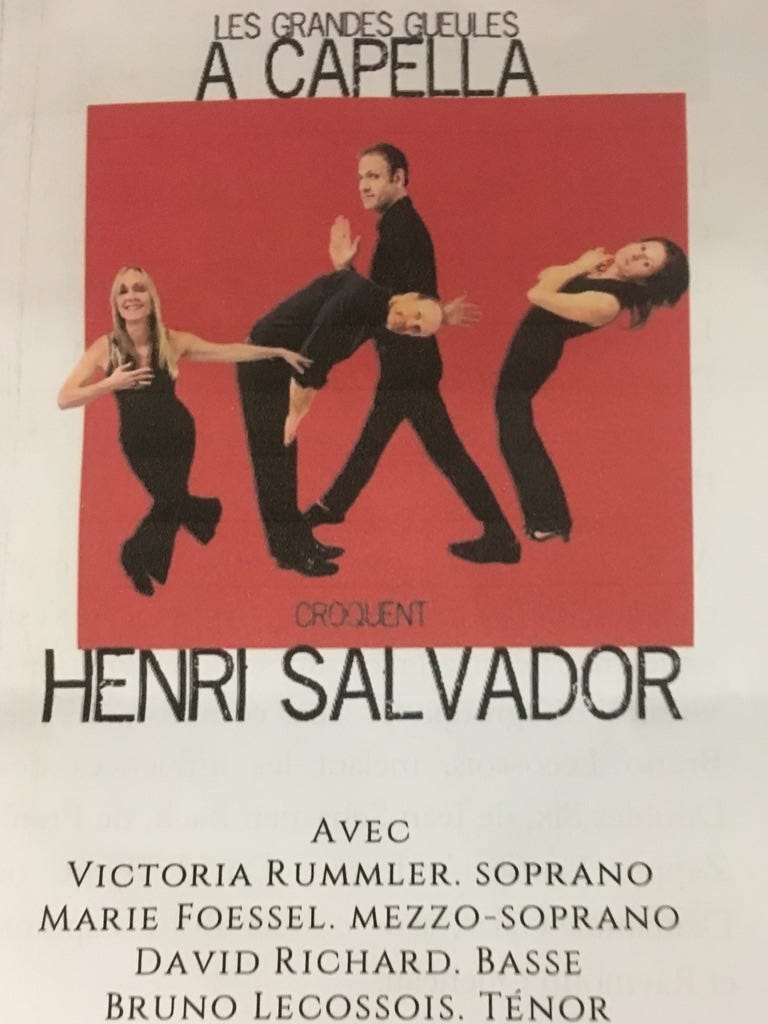

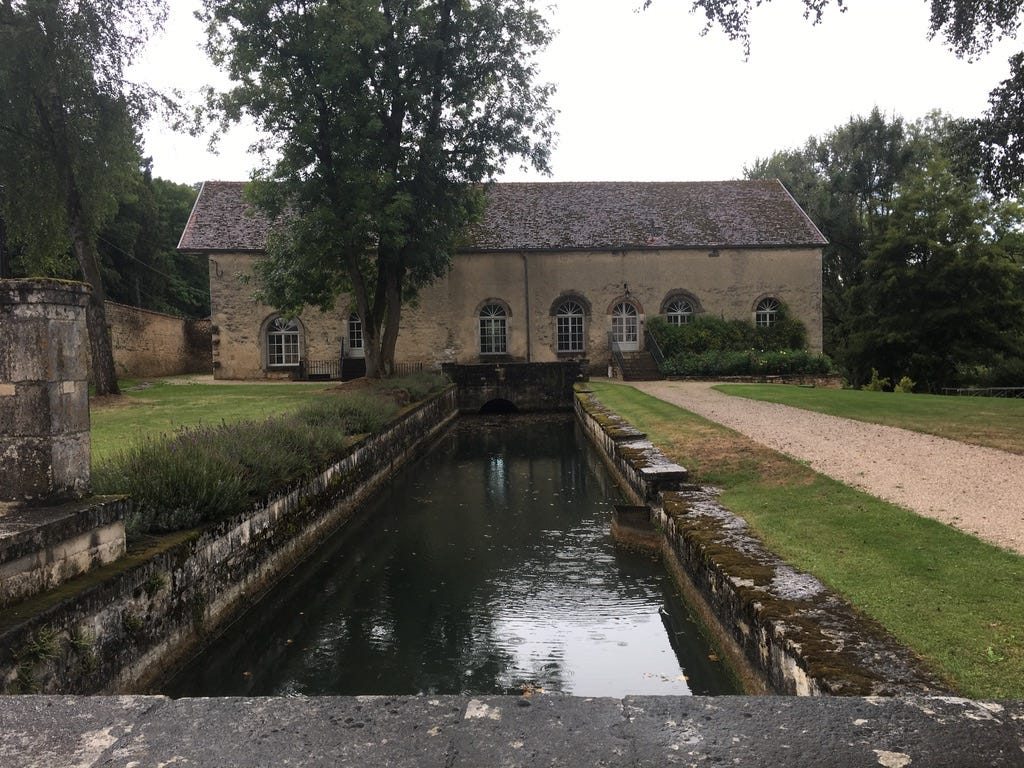
Great barn wall!